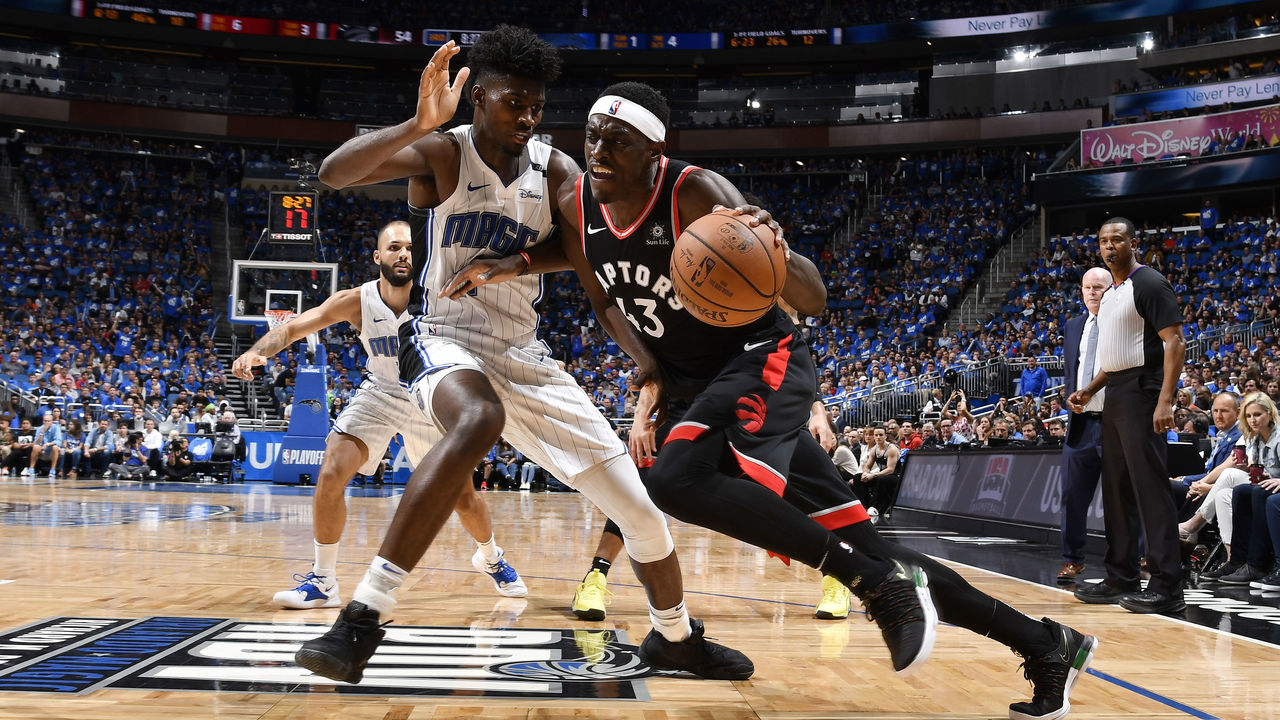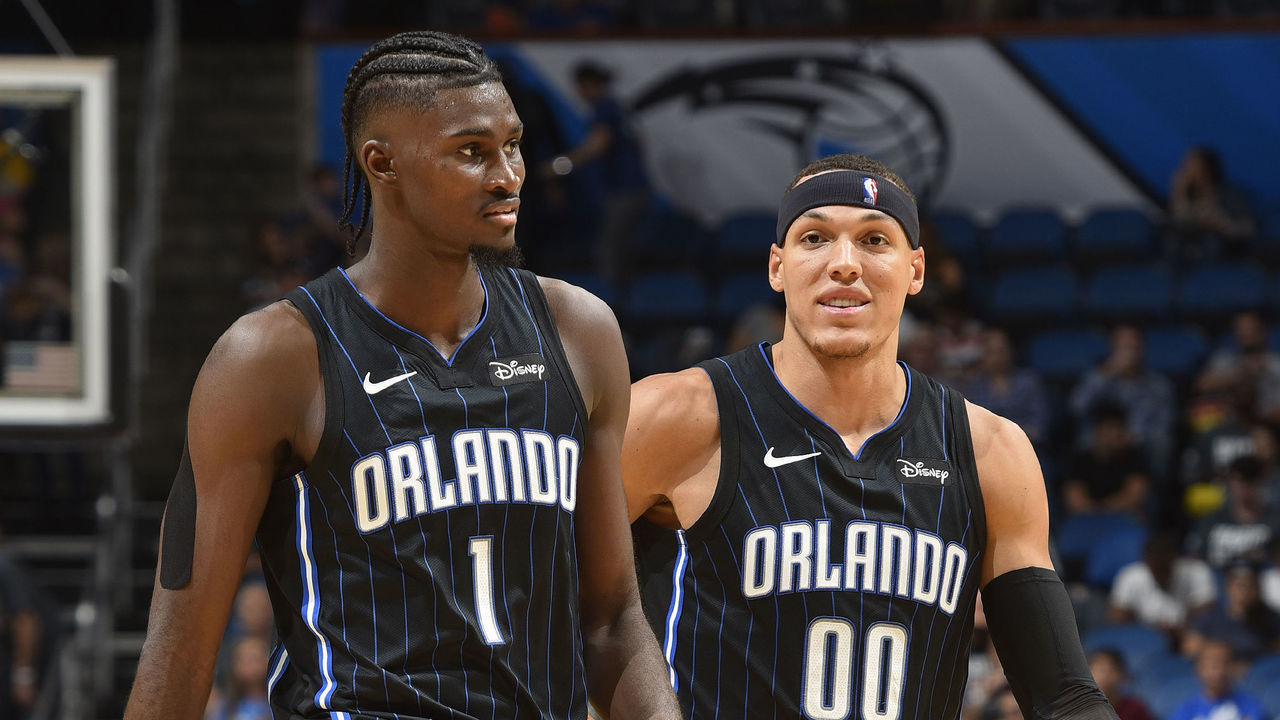It took just one ill-fated Jonathan Isaac jump step, in garbage time of a blowout win over the Kings on Sunday night, for all the air to go out of what
had been an encouraging season reboot for the Orlando Magic. As Isaac planted, the left knee he sprained seven months ago buckled, and he crumpled to the floor. Hours later, the Magic confirmed he tore his ACL.
For both Isaac and the Magic, this is plainly devastating. Orlando has one winning season in the past eight years, hasn’t won a playoff series since 2010, and has been the definition of average this year. If there was any reason to believe its highway to middle-ville had an off-ramp on the horizon, Isaac was probably it. At 22, he was already looking like a Defensive Player of the Year candidate, with the outlines of an effective offensive profile taking shape: a workable jump shot, an evolving face-up game, heady cutting instincts, and some untapped potential as a dive man in the pick-and-roll. (The Magic have used him almost exclusively as a spacer and weak-side cutter around those actions.)
Isaac may still grow into the franchise cornerstone Orlando needs, but the start to his career, as promising as it's been, has been marred by injuries. Ankle and knee ailments limited him to 27 games as a rookie. After staying mostly healthy as a sophomore last year, it seemed like a bad omen when he sprained his ankle at a jersey unveiling ceremony a few weeks into the 2019-20 season. He suffered the left knee sprain on New Year's Day, which was severe enough that it was supposed to keep him out for the remainder of the season. The coronavirus-induced hiatus, however, allowed him to rehab in time to get back for the league's restart. Now we likely won't see him again until the 2021-22 season, and what he'll look like when he returns is anyone's guess.
Isaac was - without hyperbole - one of the five best defensive players in the league this season before injuring his knee the first time, harnessing his ungodly combination of height, length, speed, and agility. He has quick hands, an explosive second jump, and the ability to shrink the floor with his loping strides and octopus arms.

Whether it was guarding like-sized point forwards or guarding smaller players on switches, he'd unfurl his 7-foot-1 wingspan, slide his feet, and swallow up drives. His help rotations on the back line happened before opposing offenses could process them. There wasn't a better weak-side shot blocker in basketball. Over the past decade, only Anthony Davis has matched Isaac's block and steal averages from this season (1.6 and 2.3, respectively).
As a defender in isolation, Isaac held opponents to 7-of-23 shooting (30.4%) with six turnovers. As the last line of defense, he held opponents to 51% shooting at the rim. With him on the floor, the Magic were the league's second-best team at deterring shots in the restricted area. That's the kind of player you can build an elite defense around.
And the Magic have been sniffing elite territory at that end of the floor. They've been a top-10 defensive team for the past two years and defended at a top-three rate with Isaac on the floor this season. The problem is they haven't been able to score enough to parlay their stout defense into anything more than fringe playoff contention. Their offense, though, had finally started to take off, ranking second in the league since the start of February thanks to an uptick in transition play, smoother half-court ball movement, and a team-wide run of hot shooting. During that 19-game span, they've poured in a ridiculous 115.1 points per 100 possessions, after averaging 105 (26th in the league) before then.
Their defense has fallen off in conjunction with the uptick in scoring, and you can probably chalk both of those swings up to Isaac's absence. While he's not a negative-value offensive player in a vacuum, the Magic's spacing-starved, frontcourt-heavy starting lineup seemed to breathe a little easier without him. However, Isaac was back on the court in Disney looking like he hadn't missed a beat - he scored 13 points in seven minutes in a scrimmage against Denver, and dropped 16 in 16 minutes in the Magic's first seeding game against Brooklyn. It offered hope that Orlando could blend its newfound offensive juice with its old defensive heft. Instead, for the rest of this season and likely next, the Magic will have to lean into their new identity and try to figure out how to defend without their gap-sealing fixer on the back end.
There's a good chance that'll mean sticking with the toolsy but oft-frustrating Aaron Gordon through next season at least. Because of the positional overlap between Gordon and Isaac, and the fact Orlando's generally performed poorly when the two share the court, it seemed like the Magic would eventually use Gordon as a trade chip. Doing so likely would've been their most realistic path to meaningfully shoring up the guard rotation and adding some needed shooting and ball-handling. But with the power forward position now otherwise vacated for some or all of 2020-21, Gordon's no longer expendable, especially given how well he's played in Isaac's absence.

That may cost Orlando a chance to balance its roster in the short term, but it won't necessarily be a bad thing in the big picture. Gordon's always been more effective at the 4 than the 3, so it's quite possible that next season can be a showcase year for him, either upping his trade value or forcing the Magic to factor him into their long-term plans.
Meanwhile, as Isaac's development takes a backseat to his rehab, his next contract will most likely do the same. He's eligible for an extension this offseason, and before the ACL tear, it looked very possible that he'd reach an agreement on a near-max deal with the Magic. It's hard to see the team rushing headlong into such a lucrative long-term commitment now, given Isaac's increasingly worrisome injury history and cloudy near-term future. If he reaches restricted free agency next offseason, will he trade annual value in exchange for a measure of long-term security? Will the team be willing to make that same trade-off?
Isaac was exactly the type of player you would've expected to sit out the restart, given that he was returning from a serious injury with a ton of money potentially at stake. The Magic eased him back and kept him on a tight minutes restriction while bringing him off the bench, which is part of the reason he was even on the floor in garbage time Sunday. But some will undoubtedly wonder whether Isaac should have been permitted to return to play. Team president Jeff Weltman vehemently denied that Isaac was rushed back.
It's possible that if his future earnings are significantly impacted by the injury, the losses will be offset by the enhanced insurance plan the league and its players' union agreed to adopt for the restart. Hopefully, it won't come to that. But any way you slice it, this is a gut punch of an injury for both player and team.
With luck, it'll only be a brief interruption in the burgeoning career of an extraordinary defensive talent.
